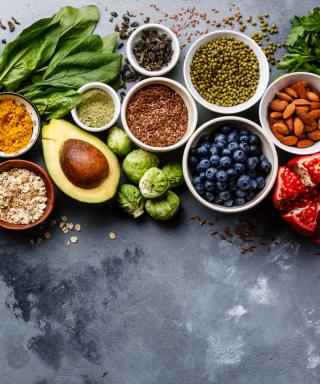Plaque, which is a sticky film that coats our teeth during the day, has thousands of bacteria, which interact with the foods we eat and cause cavities. By limiting the diet of certain types of foods which are the biggest causes of decay you can help to limit the number of cavities you may get. The bacteria in plaque feed on the sugars and starch we eat to form an acid, which breaks down the enamel of the teeth and forms cavities. Since dental healthy foods also contain sugars it is impossible to remove all sugar and starch from the diet. Sugars and starches should be eaten with a main meal, after which a thorough brushing will remove any left over food particles. If a place to brush is not handy, rinse the mouth with water, this too will help to remove some of the sugars and food particles.
An important key to dental health is calcium. Children and teenagers need more calcium than adults to help in the formation of strong, healthy teeth and bones. Pregnant women also require extra calcium in order for their baby’s teeth and bones to form properly. Milk products are very high in calcium as is spinach and canned salmon. Children are just as prone to cavities as adults are. It is not good to allow your child to nurse on a bottle with milk or fruit juice for extended periods of time because the sugars will decay the teeth. Keep snacking at a minimum and definitely clean your teeth afterwards. A good diet along with regular visits to the dentist will help to keep your teeth healthy.
Foods both dental and nutritionally recommended are high in nutrients and low in sugar. In other words, you should try to eat the foods that will do the most for your teeth and body. For better dental health stick to the foods that are high in nutritional value. Whether these foods are chosen as part of a meal or an in between meal snack, these types of foods will contribute greatly to your daily nutritional needs.Eat properly and use the traffic light system with go, caution and stop foods. Some of the go foods include milk, eggs, yogurt Melba toast, peanuts and cheese. Milk acts as an acid inhibitor when combined with starches such as cereal and works against the potential acid production of the cereal. If milk is used to wash away sweets they will not have as harmful an effect. Certain cheese such as cheddar are a good preventive food because of its sharpness, it increases salivary flow.
These foods are actually dentally poor because they are high in sugar but do have nutritional value. Some of these foods include ice cream, raisins, dried fruits, and unsweetened juices, if taken frequently. Other foods in this category are foods that are nutritionally poor but dentally acceptable. These types of food include pretzels, popcorn, and potato chips. The last group of foods is the stop group. These foods are both dentally and nutritionally unacceptable. Chocolate, candies, gum, jellies and beverages high in sugars. Avoid these foods whenever possible.
Snacks that save smiles include meat, seafood, hard-boiled eggs, milk, cheese, raw vegetables, plain popcorn, seeds and nuts. Snacks that are not good for a healthy smile include candy, cookies, cakes, pastries, presweetened cereals, marshmallows, granola bars, fast foods; sugar sweetened gum and soda. Eat sensibly, brush and floss your teeth, visit your dentist regularly and you will be on your way to better dental health.

